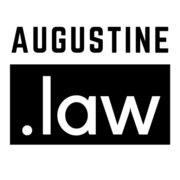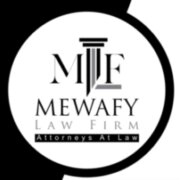Best Toxic Mold Lawyers in Illinois
Share your needs with us, get contacted by law firms.
Free. Takes 2 min.
Or refine your search by selecting a city:
List of the best lawyers in Illinois, United States
About Toxic Mold Law in Illinois, United States
Toxic mold is a significant concern for residents of Illinois, as it can cause serious health issues and property damage. Toxic mold, such as black mold (Stachybotrys chartarum), thrives in areas with excess moisture and can be found in homes, apartment buildings, workplaces, and public spaces. Illinois recognizes the dangers associated with toxic mold, but unlike some states, it does not have specific statutes that directly address mold in residential or commercial properties. Instead, relevant issues are typically governed under landlord-tenant law, property law, and building codes, as well as broader health and safety regulations. Individuals exposed to toxic mold may experience respiratory problems, allergic reactions, and in some cases, long-term health complications.
Why You May Need a Lawyer
Dealing with toxic mold can be complex, especially when it comes to understanding your legal rights and responsibilities. You may need a lawyer in the following situations:
- Landlord-Tenant Disputes: If you are a renter and believe your landlord is not addressing mold issues as required by law, a lawyer can advise you on your rights and assist in seeking repairs or compensation.
- Property Damage Claims: Homeowners facing substantial property damage due to mold might need help navigating insurance policies or pursuing claims against former owners, contractors, or builders.
- Personal Injury: If you or your family have suffered health problems due to mold exposure, a legal expert can help you pursue compensation for medical expenses, lost wages, and pain and suffering.
- Real Estate Transactions: Buyers who discover mold after purchasing a home may have claims against sellers or real estate agents for failure to disclose defects.
- Negligence Cases: Some mold cases may involve negligence by contractors, building managers, or product manufacturers.
Local Laws Overview
Illinois does not have a specific statute dedicated exclusively to toxic mold or mold remediation requirements. However, several key legal concepts and regulations impact mold cases:
- Implied Warranty of Habitability: Landlords in Illinois are required to provide rental properties that are safe and habitable. Mold caused by leaks, floods, or poor maintenance may violate this warranty.
- Disclosure Requirements: Illinois law requires sellers of residential property to disclose known material defects, which may include mold problems, through the Residential Real Property Disclosure Act.
- Building Codes and Local Ordinances: Some municipalities in Illinois have building and health codes that regulate moisture and mold prevention. Local ordinances may mandate timely repairs.
- Negligence and Tort Law: Occupants harmed by mold exposure may have legal claims if negligence can be proven, such as a landlord failing to fix a leak or a builder failing to address water damage.
- Insurance Issues: Many homeowner policies in Illinois exclude mold damage unless caused by a covered peril. Understanding your policy is critical in property damage claims.
Frequently Asked Questions
What are common signs of toxic mold in a property?
Common signs include persistent musty odors, visible black, green, or gray mold spots, water stains, peeling paint, and persistent moisture or condensation. Health symptoms such as coughing, sneezing, sinus congestion, and headaches, especially when indoors, can also be indicators.
Are landlords in Illinois required to remove mold?
Illinois law does not specify mold remediation requirements, but landlords are required to maintain habitable premises. If mold is making the property unsafe, the landlord may be legally obligated to address the issue under the implied warranty of habitability.
Can tenants withhold rent if the landlord fails to remove mold?
Tenants should not withhold rent without consulting an attorney. In certain situations, tenants may have legal grounds to do so, but improper withholding can result in eviction. Legal advice is recommended.
Does Illinois require sellers to disclose mold problems?
Yes, Illinois’ Residential Real Property Disclosure Act requires sellers to disclose known material defects affecting the property, including mold problems.
Who is responsible for mold in a rental unit?
Responsibility generally depends on the cause of the mold. If it results from structural issues or conditions under the landlord's control, the landlord is usually responsible. If tenant behavior caused the problem, the tenant may be liable.
Can I sue my landlord or property manager for toxic mold exposure?
Potentially, yes. If mold exposure results from negligence or a failure to provide a habitable living environment, you may have grounds for a personal injury or property damage lawsuit.
Are there limits on the amount of damages I can recover?
Limits depend on your claim type, the extent of your damages, and relevant insurance coverage. Personal injury and property damage claims may recover medical costs, repair expenses, lost wages, and sometimes punitive damages.
What kind of evidence do I need for a mold case?
Evidence may include photos of mold, medical records, repair receipts, correspondence with landlords or sellers, inspection reports, and expert testimony regarding the mold and its effects.
How long do I have to file a toxic mold lawsuit in Illinois?
Illinois has statutes of limitations for personal injury and property damage, often two years for injury claims and five years for property damage. Timelines may vary depending on your situation, so consult with an attorney promptly.
Does homeowners insurance cover mold in Illinois?
Coverage varies. Many policies exclude mold damage unless caused by a covered peril, such as a burst pipe. It is important to review your policy and speak with your insurer or a lawyer.
Additional Resources
If you suspect toxic mold or have related legal concerns in Illinois, the following resources may be helpful:
- Illinois Department of Public Health (IDPH): Offers guidance on mold prevention and cleanup, as well as complaint avenues for public health risks.
- Illinois Attorney General’s Office: Provides information on tenants’ rights and landlord obligations.
- City and County Health Departments: Local health departments can often provide inspections or information on local ordinances regarding mold and indoor air quality.
- Legal Aid and Tenant Advocacy Groups: Organizations like Legal Aid Chicago and other local nonprofits might offer free or low-cost legal help to renters facing mold problems.
- U.S. Environmental Protection Agency (EPA): While not Illinois-specific, the EPA publishes extensive guidance on mold dangers and remediation best practices.
- Illinois State Bar Association: Can assist in finding qualified attorneys who handle toxic mold cases.
Next Steps
If you believe you have a legal issue involving toxic mold in Illinois, consider the following steps:
- Document everything, including photos, communications, and medical or repair records.
- Report the issue to your landlord or property manager in writing and give them an opportunity to fix the problem.
- Contact your local health department if the issue remains unresolved, as they may be able to conduct an inspection or mediate.
- Review your lease, insurance policy, and any purchase agreements for relevant language on mold or property condition.
- Consult a qualified attorney experienced in toxic mold and property law to discuss your case and protect your rights.
Lawzana helps you find the best lawyers and law firms in Illinois through a curated and pre-screened list of qualified legal professionals. Our platform offers rankings and detailed profiles of attorneys and law firms, allowing you to compare based on practice areas, including Toxic Mold, experience, and client feedback.
Each profile includes a description of the firm's areas of practice, client reviews, team members and partners, year of establishment, spoken languages, office locations, contact information, social media presence, and any published articles or resources. Most firms on our platform speak English and are experienced in both local and international legal matters.
Get a quote from top-rated law firms in Illinois, United States — quickly, securely, and without unnecessary hassle.
Disclaimer:
The information provided on this page is for general informational purposes only and does not constitute legal advice. While we strive to ensure the accuracy and relevance of the content, legal information may change over time, and interpretations of the law can vary. You should always consult with a qualified legal professional for advice specific to your situation.
We disclaim all liability for actions taken or not taken based on the content of this page. If you believe any information is incorrect or outdated, please contact us, and we will review and update it where appropriate.
Browse toxic mold law firms by city in Illinois
Refine your search by selecting a city.















